
What Are the Top DeFi Protocols? Complete 2025 Guide to Decentralized Finance
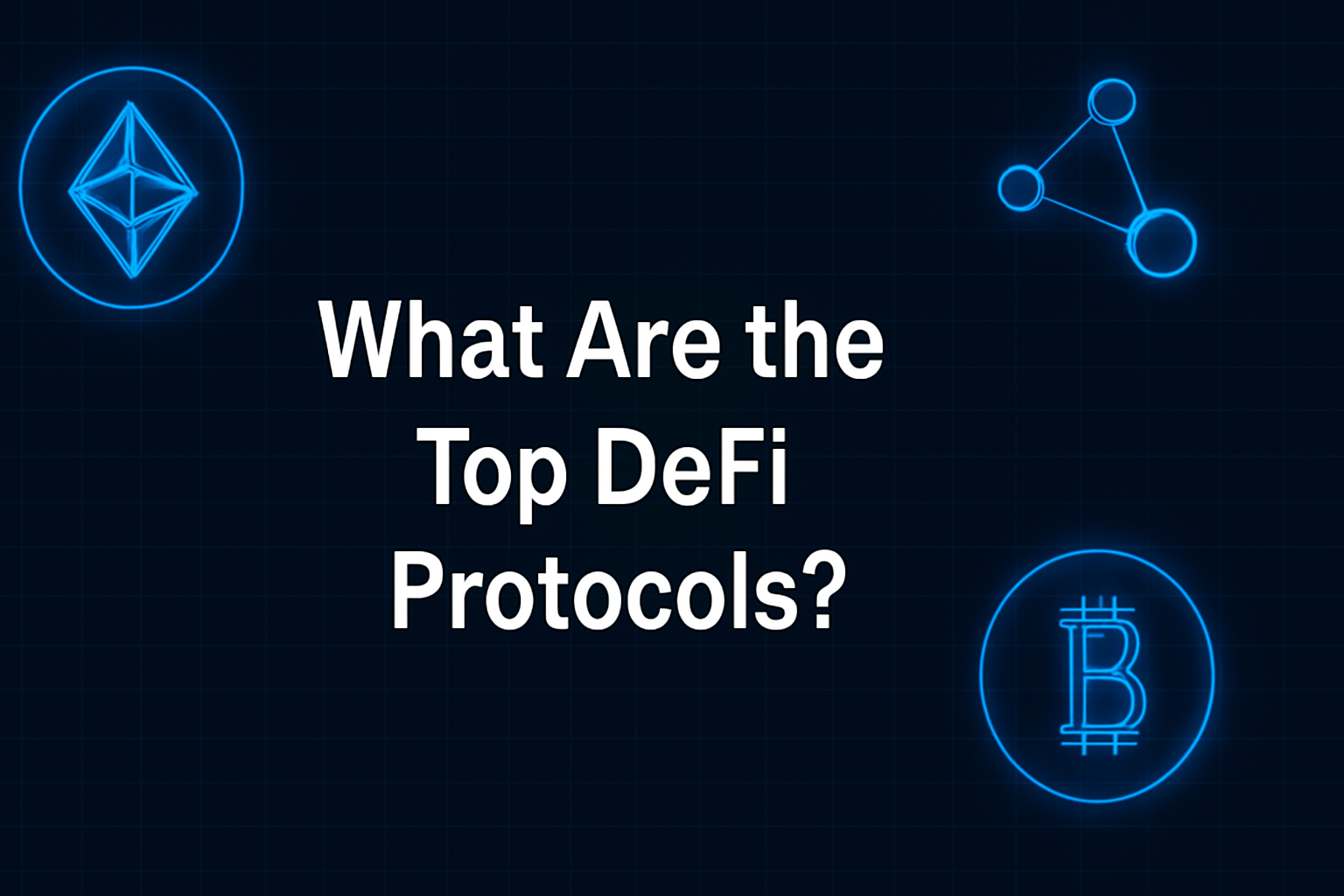
Decentralized Finance (DeFi) has revolutionized how we interact with money, eliminating traditional intermediaries and creating a permissionless financial system accessible to anyone with an internet connection. As we navigate through 2025, the DeFi ecosystem has matured dramatically, with innovative protocols competing for dominance while collectively managing billions of dollars in Total Value Locked (TVL). For investors and traders seeking to capitalize on DeFi opportunities, understanding the leading protocols is essential—particularly when paired with sophisticated analytics platforms like Token Metrics that provide the intelligence needed to navigate this complex landscape profitably. This comprehensive guide explores the top DeFi protocols reshaping finance and how to evaluate them for investment opportunities.
Understanding DeFi Protocols and Total Value Locked
Before diving into specific protocols, it's important to understand what DeFi protocols are and how we measure their success. A DeFi protocol is a collection of smart contracts, code, and governance rules that automate financial services on blockchain networks without requiring centralized intermediaries. These protocols enable lending, borrowing, trading, staking, and yield generation—all executed through transparent, auditable code rather than traditional financial institutions.
Total Value Locked (TVL) serves as the primary metric for assessing DeFi protocol success. TVL quantifies the dollar value of all digital assets—cryptocurrencies, stablecoins, and tokenized assets—that users have deposited into a protocol's smart contracts for various purposes including lending, staking, and liquidity provision. A higher TVL generally indicates greater user confidence, adoption, and capital efficiency, making it the standard benchmark for comparing DeFi platforms.
Calculating TVL involves listing every asset held in a protocol's on-chain contracts, fetching real-time USD prices for each asset via reliable market APIs like CoinGecko or Chainlink oracles, multiplying each asset's contract balance by its current price, and summing these values to obtain the protocol's total TVL. Platforms like DefiLlama provide these calculations in real-time, offering up-to-the-second snapshots of DeFi's economic activity across the entire ecosystem.
The Top DeFi Protocols of 2025
1. Lido: Liquid Staking Dominance
Lido stands as the undisputed leader in DeFi by TVL, with over $10.2 billion locked in the protocol as of mid-2025. This pioneering liquid staking platform enables users to stake their Ethereum, Polygon, and Solana tokens while maintaining liquidity—solving one of crypto's most significant problems.
Traditional staking requires locking assets for extended periods, sacrificing liquidity and opportunity cost. Lido revolutionized this model by issuing derivative tokens like stETH (staked Ethereum) that represent staked assets while remaining tradeable and usable across DeFi. Users can stake ETH through Lido, receive stETH in return, and continue earning staking rewards while simultaneously using their stETH for lending, providing liquidity, or other DeFi activities.
This innovation has made Lido indispensable for ETH holders wanting to earn staking yields (currently around 3-4% annually) without sacrificing capital flexibility. The protocol's straightforward process—connect wallet, select cryptocurrency, specify staking amount—combined with its battle-tested security has established Lido as the backbone of Ethereum's staking infrastructure.
2. Aave: Premier Lending and Borrowing Protocol
Aave ranks among the top DeFi protocols with its sophisticated lending and borrowing marketplace. This non-custodial protocol allows users to lend crypto assets to earn interest or borrow against collateral—all executed through smart contracts without intermediaries.
What distinguishes Aave is its innovation in lending mechanics. The protocol pioneered "flash loans"—uncollateralized loans that must be borrowed and repaid within a single blockchain transaction. While this sounds risky, the atomic nature of blockchain transactions means that if the loan isn't repaid, the entire transaction reverts, eliminating default risk. Flash loans enable sophisticated arbitrage strategies and capital-efficient operations previously impossible in traditional finance.
Aave supports lending and borrowing across 15+ cryptocurrencies on multiple blockchain networks including Ethereum, Polygon, Avalanche, and Arbitrum. Users can choose between stable and variable interest rates, providing flexibility based on market conditions and risk preferences. The protocol's AAVE governance token empowers holders to vote on protocol upgrades, risk parameters, and new market listings, ensuring decentralized decision-making.
3. EigenLayer: Restaking Innovation
EigenLayer has emerged as a transformative force in DeFi, introducing the concept of "restaking"—allowing users to use their staked ETH to secure additional networks and protocols simultaneously, earning multiple yield streams from a single staked asset. This capital efficiency innovation has propelled EigenLayer into the upper echelon of DeFi protocols by TVL.
The protocol essentially creates a marketplace where stakers can opt-in to validate for new blockchain networks, oracle services, data availability layers, and other infrastructure that requires economic security. By leveraging Ethereum's substantial staked capital, EigenLayer enables emerging protocols to bootstrap security without requiring massive token distributions or new validator sets.
This innovation addresses one of crypto's fundamental challenges: capital fragmentation. Rather than every new protocol requiring separate staking mechanisms and validator networks, EigenLayer allows reuse of existing staked capital, improving overall ecosystem efficiency while providing stakers with enhanced yields.
4. Uniswap: Decentralized Exchange Pioneer
Uniswap revolutionized cryptocurrency trading by introducing the Automated Market Maker (AMM) model, eliminating traditional order books in favor of liquidity pools. As the largest decentralized exchange (DEX) by volume, Uniswap processes billions in daily trading volume across thousands of token pairs.
The protocol's latest iteration, Uniswap V3, introduced concentrated liquidity—allowing liquidity providers to allocate capital within specific price ranges rather than across the entire price curve. This capital efficiency improvement enables providers to earn higher fees on the same capital or provide equal liquidity with less capital, dramatically improving returns.
Uniswap's permissionless nature means anyone can list tokens without gatekeepers or approval processes, fostering a truly open financial marketplace. The protocol charges a small fee on each swap (typically 0.05% to 1% depending on the pool), with fees distributed to liquidity providers proportional to their contribution. This simple yet powerful model has processed trillions in cumulative volume since launch.
5. MakerDAO (Sky): Decentralized Stablecoin Issuer
MakerDAO, recently rebranded as Sky, operates the DAI stablecoin—the largest decentralized stablecoin by market capitalization. Unlike centralized stablecoins like USDC or USDT that rely on traditional banking relationships and fiat reserves, DAI is fully collateralized by crypto assets locked in Maker Vaults and governed entirely by smart contracts.
Users generate DAI by depositing collateral (typically ETH or other approved assets) into Maker Vaults. The collateralization ratio must exceed 150% (meaning $150 of collateral generates $100 of DAI), providing safety buffers against price volatility. If collateral value drops below required ratios, the protocol automatically liquidates positions to maintain DAI's dollar peg.
The MKR governance token enables holders to vote on critical parameters including collateral types, stability fees, liquidation ratios, and protocol upgrades. This decentralized governance ensures no single entity controls the stablecoin, making DAI resistant to censorship and regulatory capture—a critical property as governments increase scrutiny of centralized stablecoins.
6. Compound: Algorithmic Interest Rate Protocol
Compound pioneered algorithmic interest rate markets in DeFi, creating a protocol where interest rates adjust automatically based on supply and demand for each asset. When borrowing demand increases, rates rise to incentivize more lending; when supply exceeds demand, rates fall to encourage borrowing—all executed through transparent smart contracts.
The protocol operates on Ethereum, allowing seamless integration with numerous decentralized applications and wallets. Compound's governance operates through COMP tokens, empowering holders to propose and vote on protocol changes, ensuring truly decentralized decision-making.
Users deposit crypto assets into Compound to earn interest from borrowers, receiving cTokens (like cETH or cUSDC) that represent their deposit plus accrued interest. These cTokens can be used across DeFi—as collateral, for trading, or in other protocols—while continuously earning interest, creating capital efficiency similar to Lido's liquid staking model.
7. Curve Finance: Stablecoin Trading Specialist
Curve Finance dominates stablecoin trading with its specialized AMM optimized for low-slippage swaps between similarly-valued assets. While Uniswap excels at trading volatile assets, Curve's algorithms ensure minimal price impact when swapping between stablecoins like USDC, USDT, DAI, and FRAX—often achieving slippage under 0.01% on large trades.
This specialization makes Curve indispensable for DeFi protocols that need efficient stablecoin conversions, treasury management, or large-volume swaps. The protocol's liquidity pools also supply capital to other DeFi protocols like Compound, enabling users to earn multiple yield streams simultaneously—trading fees plus lending interest.
Curve's unique "vote-escrowed" governance model (veCRV) rewards long-term commitment. Users can lock CRV tokens for periods between one week and four years, receiving veCRV that provides voting power, boosted pool rewards (up to 2.5x), and fee rebates. This mechanism aligns incentives, encouraging governance participants to consider long-term protocol health rather than short-term extraction.
8. PancakeSwap: Binance Smart Chain Leader
PancakeSwap emerged as the dominant DEX on Binance Smart Chain (BSC), offering Uniswap-like functionality with significantly lower fees and faster transaction times. The protocol has become one of the most popular DEXs across all chains thanks to its user-friendly interface and extensive farming and staking options.
BSC's lower fees (often under $0.50 per transaction versus $5-50 on Ethereum during congestion) make PancakeSwap particularly attractive for smaller traders and retail users priced out of Ethereum-based protocols. The platform offers yield farming, liquidity provision, staking, and even NFT marketplaces and prediction markets, creating a comprehensive DeFi ecosystem on a single platform.
Token Metrics: Essential Intelligence for DeFi Investing
While understanding top DeFi protocols is crucial, successfully investing in this space requires sophisticated analytics and real-time intelligence. This is where Token Metrics establishes itself as the premier AI-powered crypto trading and analytics platform, providing the insights needed to navigate DeFi profitably.
Comprehensive DeFi Protocol Analysis
Token Metrics applies advanced AI and machine learning to analyze thousands of cryptocurrencies, including governance tokens from major DeFi protocols like AAVE, UNI, COMP, CRV, and emerging protocols. The platform assigns Trader Grades (0-100) for short-term opportunities and Investor Grades for long-term potential, helping users identify which DeFi tokens offer the best risk-adjusted returns.
For DeFi investors, this analysis is invaluable. Rather than manually researching protocol TVL, revenue generation, governance activity, competitive positioning, and tokenomics across dozens of protocols, Token Metrics consolidates this intelligence into actionable scores and signals. The platform's AI processes on-chain metrics, social sentiment, developer activity, and market dynamics to surface opportunities before they become obvious to the broader market.
Real-Time DeFi Market Monitoring
DeFi markets move rapidly, with protocol TVL, yields, and token prices changing constantly based on market conditions, governance decisions, and competitive dynamics. Token Metrics provides real-time monitoring and alerts, notifying users of significant developments including TVL changes signaling capital flows, governance proposals affecting protocol economics, yield opportunities across lending markets, and emerging protocols gaining traction.
This real-time intelligence enables traders to capitalize on opportunities as they emerge rather than discovering them after price appreciation has already occurred. For example, when a major protocol announces a governance vote to change fee structures or token emissions, Token Metrics users receive alerts enabling them to evaluate implications and position accordingly before the broader market reacts.
AI-Powered Portfolio Construction
Token Metrics offers AI-managed indices specifically focused on DeFi sectors, providing diversified exposure to leading protocols while automatically rebalancing based on market conditions. These indices eliminate the need for constant manual rebalancing while ensuring exposure to the highest-quality DeFi tokens identified by Token Metrics' AI algorithms.
For investors seeking DeFi exposure without picking individual protocols, these indices provide professional-grade portfolio management with transparent methodologies and real-time performance tracking. The platform's algorithms consider factors including protocol fundamentals, token valuations, market momentum, and risk metrics to construct optimal DeFi portfolios.
Integrated Trading Execution
In March 2025, Token Metrics launched integrated on-chain trading, enabling users to research DeFi protocols using AI ratings and execute trades directly on the platform through multi-chain swaps—typically completing the entire research-to-execution process in under two minutes.
This integration is particularly valuable for DeFi trading, where opportunities can be fleeting and multiple chains require different wallet configurations. Token Metrics' unified interface simplifies executing trades across Ethereum, Polygon, Arbitrum, and other networks where major DeFi protocols operate, eliminating friction that often causes traders to miss optimal entry points.
Risk Assessment and Security Analysis
DeFi protocols carry unique risks including smart contract vulnerabilities, governance attacks, economic exploits, and composability risks when protocols interact. Token Metrics incorporates security assessments and risk analysis into its protocol evaluations, helping users identify potential red flags before committing capital.
The platform tracks smart contract audits, past security incidents, insurance coverage availability, and community governance health—providing a comprehensive risk profile alongside return potential. This holistic analysis ensures users understand not just upside potential but downside risks when investing in DeFi protocols.
Evaluating DeFi Protocols for Investment
When researching DeFi protocols for investment opportunities, several factors merit consideration beyond simple TVL rankings:
Revenue Generation: Protocols that generate sustainable revenue through fees have demonstrated product-market fit and possess resources for ongoing development. Analyze fee revenue relative to token market cap to identify undervalued protocols.
Token Utility: Strong tokenomics include governance rights, fee sharing, staking rewards, or other utility that creates sustainable demand for the token beyond speculation.
Developer Activity: Active development signals ongoing innovation and protocol improvement. Check GitHub commits, proposal activity, and upgrade implementations.
Competitive Positioning: Understand each protocol's unique value proposition and whether network effects, liquidity advantages, or technical innovations create defensible moats against competition.
Regulatory Risk: DeFi protocols face evolving regulatory scrutiny. Consider jurisdictional risks, compliance measures, and decentralization levels that affect regulatory classification.
The Future of DeFi in 2025 and Beyond
The DeFi landscape continues evolving rapidly with several trends shaping the future:
AI Integration: Artificial intelligence is being integrated into DeFi protocols to enhance trading automation, risk management, and yield optimization—creating more sophisticated and accessible financial products.
Cross-Chain Interoperability: Bridges and cross-chain protocols enable assets to move seamlessly between networks, allowing users to access the best yields and features regardless of blockchain.
Real-World Asset Tokenization: DeFi protocols are increasingly integrating real-world assets like treasuries, real estate, and commodities, bridging traditional and decentralized finance.
Institutional Adoption: Major financial institutions are exploring DeFi protocols for settlements, lending, and asset management, bringing substantial capital and legitimacy to the space.
Conclusion
The top DeFi protocols of 2025—led by Lido, Aave, EigenLayer, Uniswap, MakerDAO, Compound, Curve, and PancakeSwap—represent the cutting edge of financial innovation, collectively managing tens of billions in TVL while providing services ranging from lending and trading to staking and stablecoin issuance. These protocols have demonstrated security, innovation, and product-market fit that positions them as the infrastructure layer for decentralized finance.
For investors seeking to capitalize on DeFi opportunities, success requires more than simply buying governance tokens from top protocols. It demands comprehensive market intelligence, real-time monitoring, risk assessment, and strategic execution—capabilities that Token Metrics provides as the premier AI-powered crypto trading and analytics platform. By combining Token Metrics' sophisticated analytics with deep understanding of DeFi protocol fundamentals, investors can identify opportunities, manage risks, and execute strategies that generate superior returns in the rapidly evolving world of decentralized finance.

.svg)

Create Your Free Token Metrics Account

.png)




%201.svg)
%201.svg)


%201.svg)












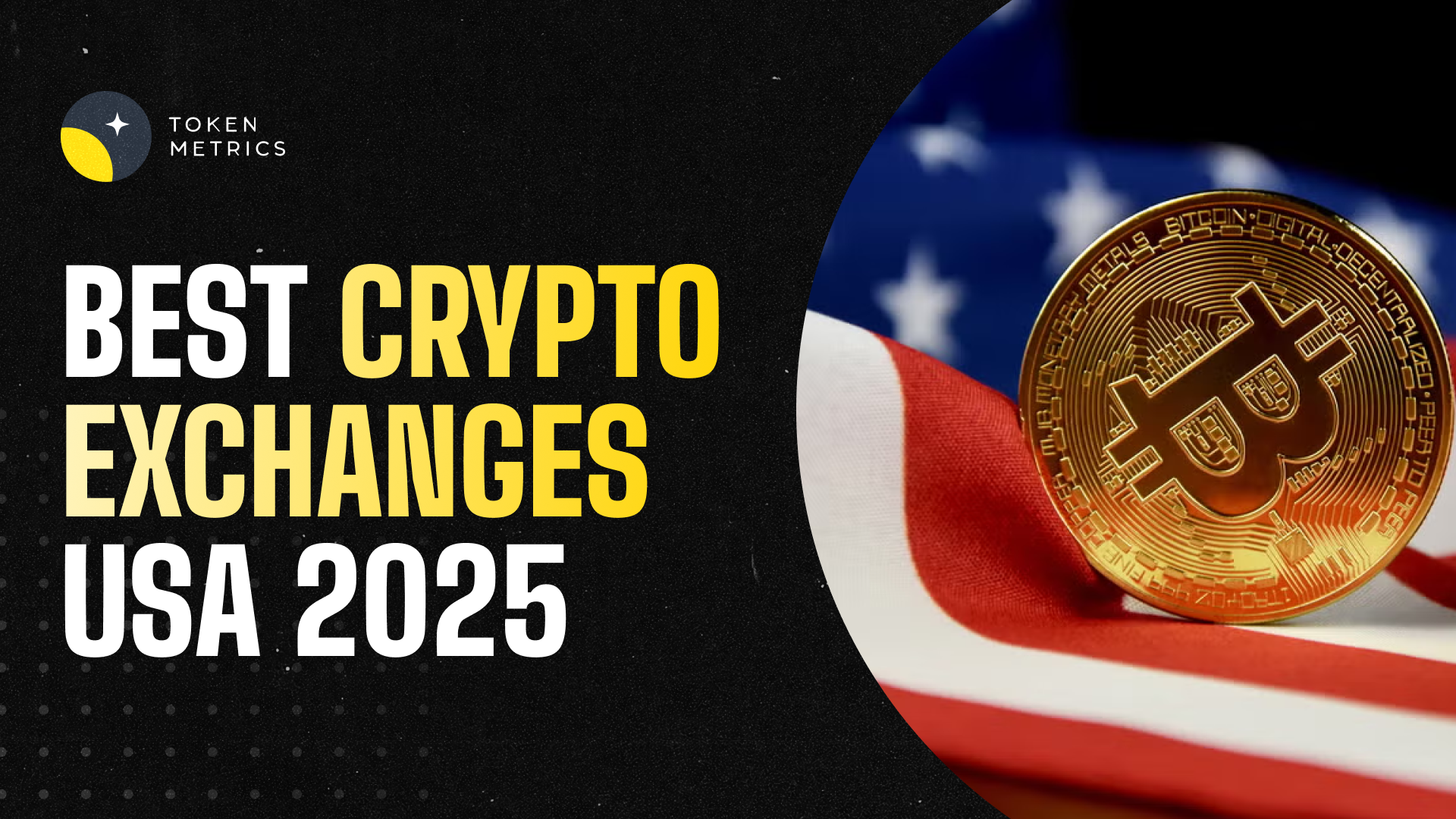


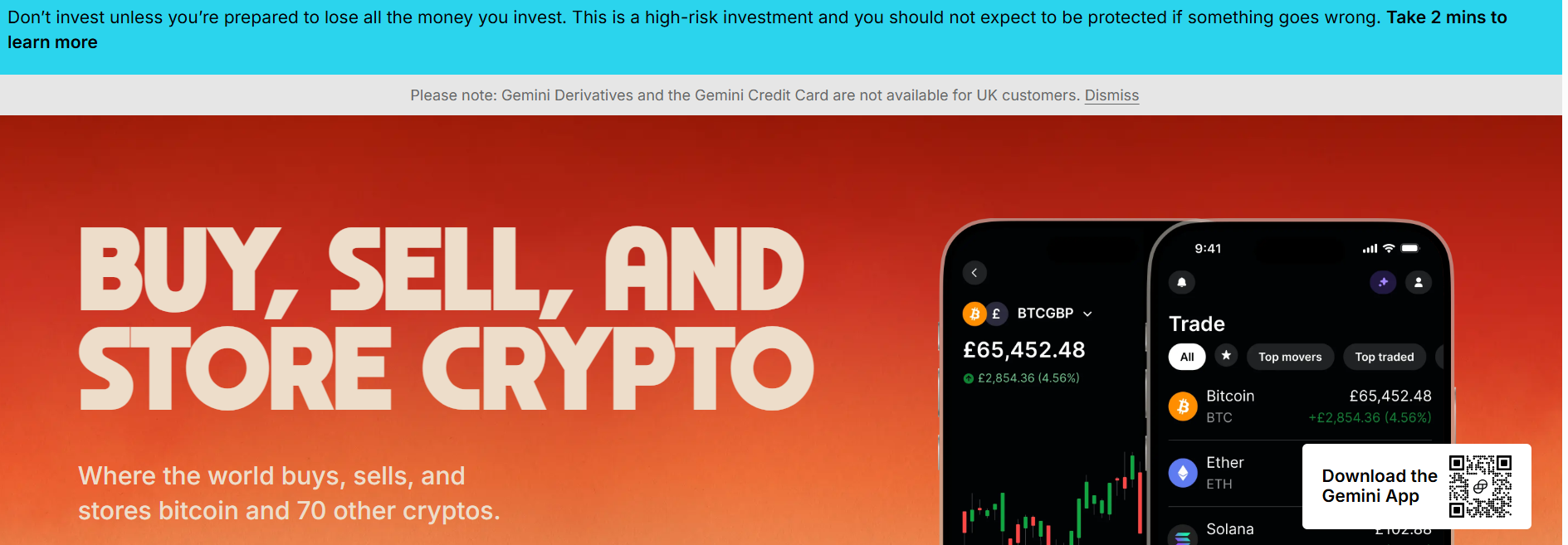


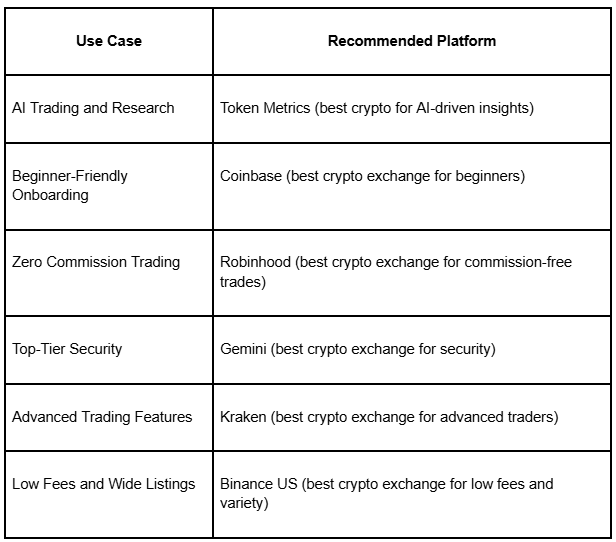
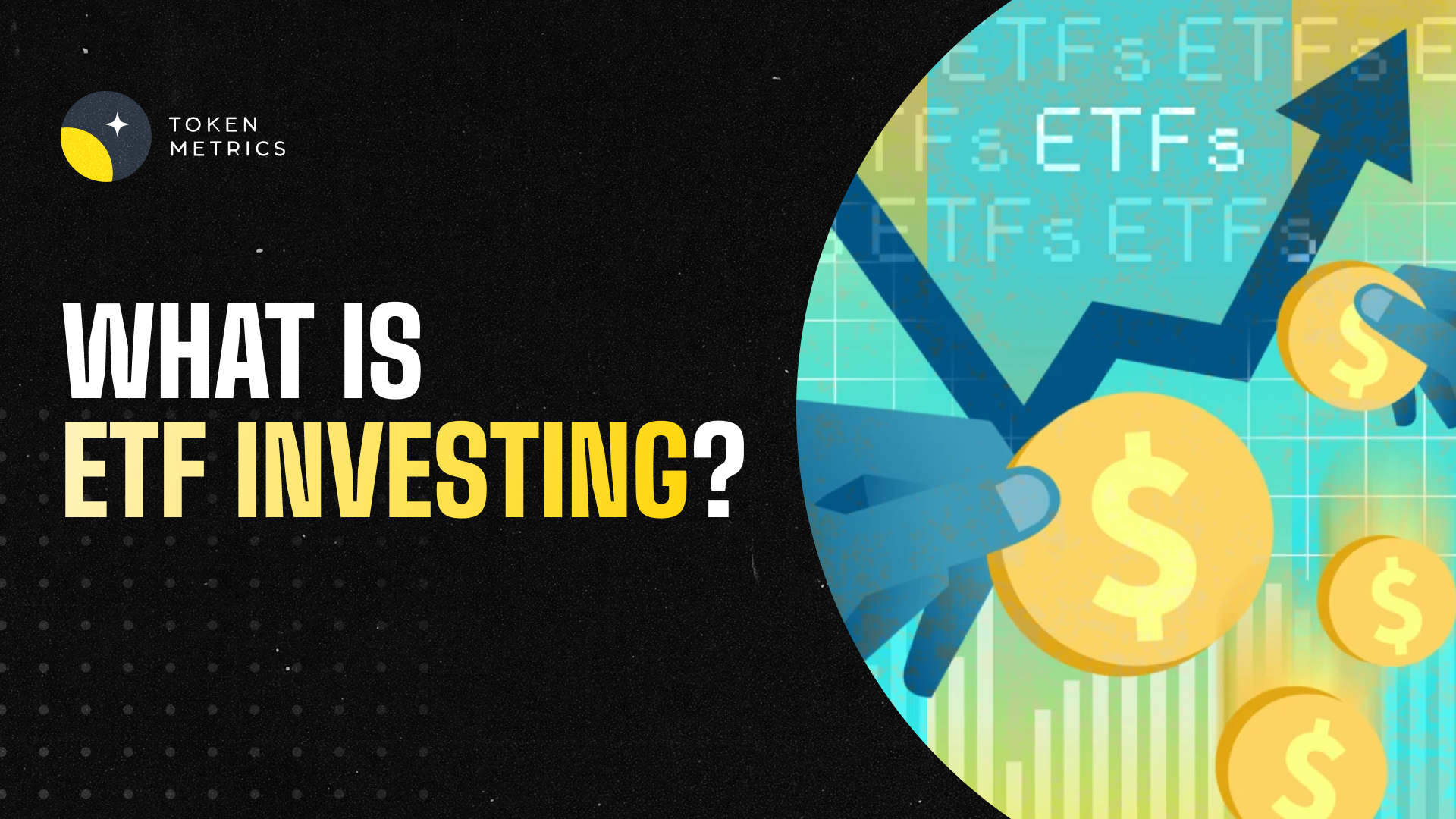

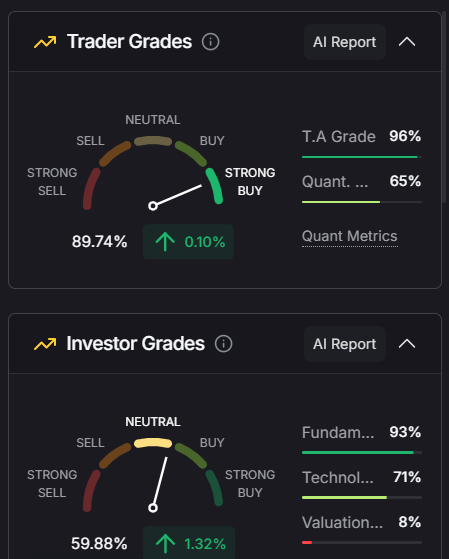

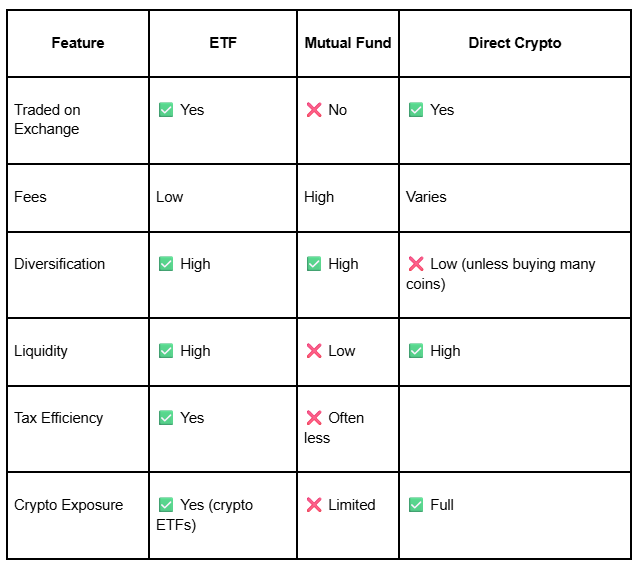



.svg)




.png)